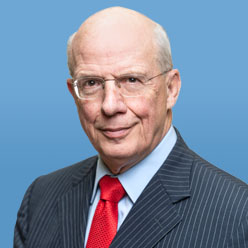Putting aside Russia's phony claims of "threats to ethnic Russians" and "Ukrainian fascists run amok," there are real reasons for its invasion of Ukraine. Understanding these is central to crafting the West's long-term response. And it must be a long-term response, because Crimea isn't the end of Russia's neo-imperial ambitions.
We shouldn't be surprised by President Vladimir Putin's drive to regain what Russia lost with the collapse of the Soviet Union. This is typical of how all the successor states of collapsed 20th-century empires behaved.
A century ago there were only 55 countries in the world; now there are 193. Most of these new countries were created by the collapse of the 13 empires that dominated the world in 1900. Every one of those empires' successor states made it a top foreign-policy priority to re-establish influence in their former territories.
Most former imperial capitals pursued these aims peacefully, but others have used force. It should be no surprise that Mr. Putin's Russia ultimately pursued the latter course in Ukraine.
At home, Russia's elites used guns, intimidation and a corrupt legal system to create their multibillion-dollar fortunes. Mr. Putin and his allies used targeted killings, beatings and threats to consolidate their power.
As we saw with Russia's 2008 face-off with Georgia, Mr. Putin has been all too happy to extend this policy abroad. Yet Russian irredentism began long before Mr. Putin's rise.
In 1995, only four years after the collapse of the Soviet Union, the writer and former dissident Alexander Solzhenitsyn put on his nationalist hat to address the Russian legislature and call for a union of Belarus, Ukraine and Kazakhstan. That he was given such a prominent forum underscores the popularity of his idea.
By late 2001, a law was enacted to facilitate the expansion of the territory of Russia. The reported steps now being taken in Crimea are consistent with that law. Under that law, a foreign state can accede to the Russian Federation by making a formal request, and after the Russian president consults with both chambers of that country's legislature.
In 2003, apparently oblivious to the size and depth of Ukrainian nationalism, Dmitri Rogozin, now Putin's deputy prime minister, outlined the need for Russian perseverance: "We [Russians] must present ourselves with the problem of a union, no matter how unrealistic this idea is in today's conditions. And we must create conditions to result in the environment with which Germany dealt for forty years coming out united in the end."
Later that year, Russian Defense Minister Sergei Ivanov authored a doctrine—one on display today in Crimea—to justify the use of force to protect Russian citizens living beyond the borders of Russia. The following year, Prime Minister Mikhail Fradkov enacted policies making it easier for Russian citizenship to be granted to those not living in Russia. That process is now being accelerated in Crimea and other parts of Ukraine.
The year 2005 saw the near-success of Russian-backed efforts to fraudulently elect Russian proxy Viktor Yanukovych as president of Ukraine. That ploy produced enough public outrage to spawn the Orange Revolution, bringing Mr. Yanukovych's pro-Western rival, Viktor Yushchenko, to power. But Russian efforts ultimately triumphed and Mr. Yanukovych was elected in 2010, quickly enacting policies long desired by Moscow.
The Yanukovych administration extended the lease of the Black Sea port of Sevastopol to Russia until 2041, while repressing the country's free press and vestiges of an independent judiciary. Ukraine was rendered economically unstable by the looting carried out by Yanukovych and his cronies. The amount of money Ukraine now seeks from the IMF, $15 billion, is dwarfed by the tens of billions (and perhaps as much as $130 billion) that Ukrainian officials say were embezzled, lost, or moved offshore during Yanukovych's rule.
Perhaps in anticipation of the Ukrainian people's eventual rejection of Mr. Yanukovych and his policies, his government created a thuggish riot police, the Berkut. Ironically this body, built to preserve order through force, was faulted by top Russian officials for not using enough force in Maidan, even though dozens of protesters were killed at their hands. The reality is simply that pro-Moscow forces had insufficient support in Ukraine to keep him in power.
The extent and timing of further Russian intervention in Ukraine is unclear. But the desire of Russian nationalists to annex more Ukrainian territory should now be clear. Nor do Russia's ambitions stop with Ukraine. Belarus and Moldova's breakaway region of Transnistria are high on the list of territories that Russian nationalists believe should be part of greater Russia.
Other independent countries once under Moscow's sway, including several NATO allies, are understandably nervous. They should be.
